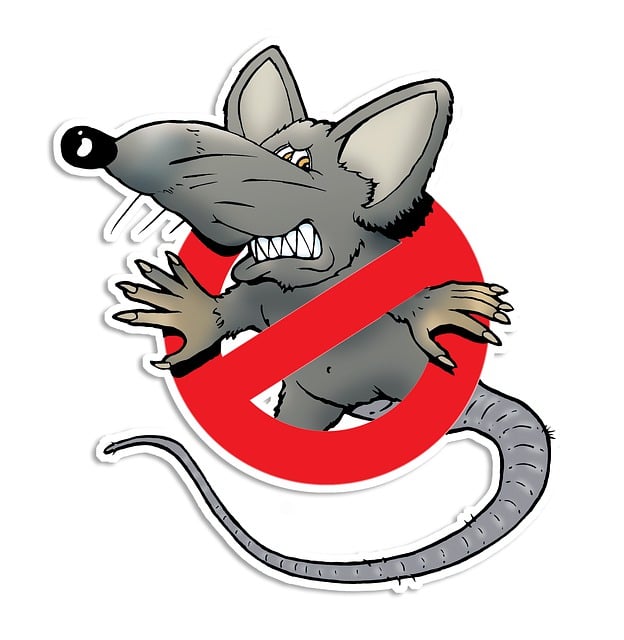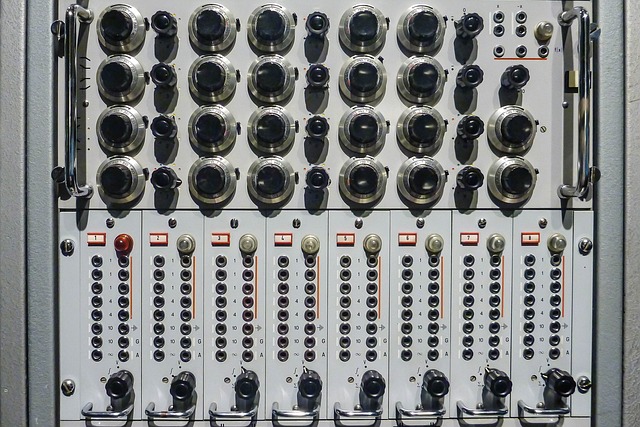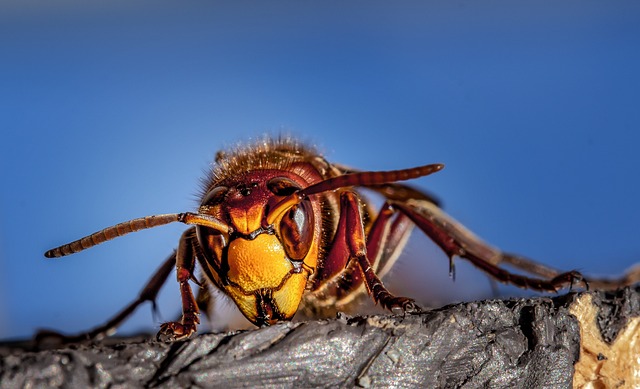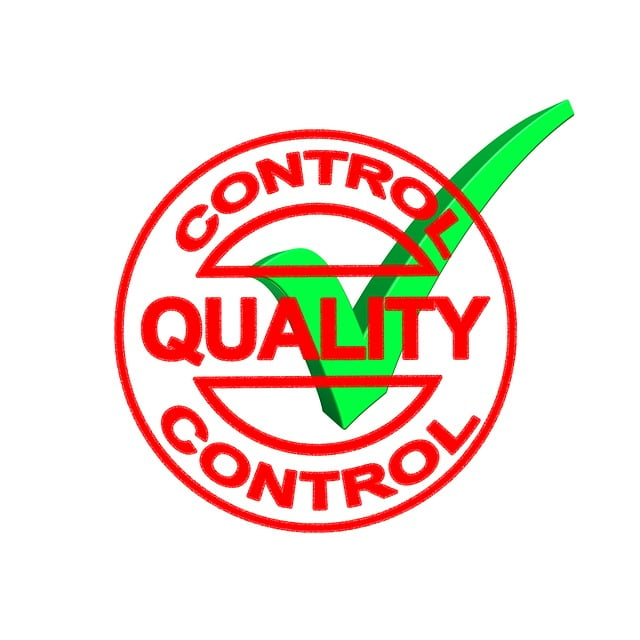Warehouses, with their unique challenges, require specialized Commercial Pest Control strategies due to conducive environments for diverse pest populations. Effective management involves strategic inspections, targeted treatments, and preventive measures by professionals who identify entry points and monitor activities. This proactive approach ensures compliance, preserves goods, fosters a clean environment, and prevents structural damage and health risks caused by pests like rodents and insects. Choosing the right Commercial Pest Control services with expertise in industrial settings is crucial for maintaining a safe, sanitary, and efficient warehouse operation through Integrated Pest Management (IPM) strategies.
Pest control in warehouses is not just about ticking boxes; it’s a critical component of maintaining a safe, efficient, and sanitary working environment. In this comprehensive guide, we delve into the unique challenges of commercial pest control in warehouse settings. From understanding the diverse range of pests that thrive in these environments to exploring effective prevention strategies, this article equips businesses with the knowledge to safeguard their operations. Discover why professional management is essential, learn about integrating pest control into warehouse workflows, and explore long-term solutions for a pest-free haven.
Understanding Commercial Pest Control: The Warehouse Environment

Warehouses, as bustling commercial spaces, present unique challenges for pest control. Understanding commercial pest control in this environment involves recognizing the diverse range of pests that thrive in large, open areas with ample hiding spots and potential food sources. Infestations can quickly escalate, impacting not only the quality of stored goods but also the overall efficiency and safety of warehouse operations.
Commercial pest control for warehouses requires a strategic approach that combines regular inspections, targeted treatments, and preventive measures. Professionals employ specialized knowledge and tools to identify entry points, monitor activity, and implement tailored solutions. This proactive management ensures compliance with health and safety regulations, maintains product integrity, and promotes a clean, secure workspace for warehouse employees and operations.
Common Pests in Warehouses and Their Impact

Warehouses, with their vast spaces and diverse storage conditions, often become breeding grounds for various pests. Common intruders include insects such as cockroaches, termites, and ants, which are attracted by food items and organic materials commonly found in warehouses. These pests not only cause structural damage but also pose health risks to employees by contaminating food supplies and triggering allergies or asthma.
Rodents like mice and rats are another significant concern, entering through small openings and seeking shelter in the dark, narrow spaces of a warehouse. They can cause extensive damage by gnawing on packaging, electrical wires, and even wooden structures. Moreover, their presence poses health hazards, as they carry diseases and parasites that can affect both human health and product quality. Effective commercial pest control is crucial to mitigate these issues, ensuring a safe, clean, and efficient working environment for warehouse operations.
Why Professional Warehouse Pest Management is Crucial

Professional warehouse pest management is crucial for several reasons, especially in maintaining a clean and safe environment for both employees and products. With proper commercial pest control measures in place, businesses can protect their assets from potential damage caused by pests like rodents, insects, or birds. These pests can infiltrate vast storage spaces and cause extensive harm over time, leading to costly repairs and disruptions in operations.
Moreover, a professional approach ensures compliance with health and safety regulations, which is particularly important in the warehouse industry where hygiene standards must be impeccable. Skilled pest control experts employ tailored strategies using advanced techniques and eco-friendly products to eradicate existing infestations and prevent future ones. This proactive measure not only saves businesses from significant losses but also enhances their reputation by demonstrating a commitment to quality and customer satisfaction.
Developing an Effective Warehouse Pest Control Strategy

Developing a robust warehouse pest control strategy is paramount for businesses to maintain a hygienic and efficient working environment. Commercial pest control experts recommend a multi-faceted approach that combines regular inspections, sanitation practices, and targeted treatments. By identifying potential entry points, sealing them off, and implementing strict cleanliness standards, warehouses can deter pests like rodents, insects, and birds effectively.
Regular commercial pest control services are crucial for proactive management. These services offer tailored solutions to address specific pest issues, ensuring that any infestation is detected early and treated promptly. With specialized equipment and expertise, professionals employ eco-friendly methods to eliminate pests while minimizing the risk to warehouse operations and stored goods.
Best Practices for Preventing and Controlling Pests

To effectively manage pests in warehouses, a multi-faceted approach combining best practices and professional commercial pest control is essential. Preventative measures are key; maintaining clean and organized spaces, repairing any cracks or gaps that could serve as entry points, and ensuring proper food storage and waste management significantly reduces pest appeal. Regular inspections, especially around loading docks and entry points, can help identify potential issues early on.
Implementing a comprehensive pest control strategy involves working with professionals who offer tailored solutions. This includes identifying the specific pests plaguing the warehouse, as treatments vary for insects, rodents, and other critters. Professional services often employ eco-friendly methods and advanced technology to target infestations effectively while minimizing environmental impact. Regular treatment plans and proactive monitoring ensure ongoing protection, making warehouses less inviting to unwanted visitors.
Integrating Pest Control with Warehouse Operations

Integrating pest control into warehouse operations is crucial for maintaining a safe, efficient, and productive environment. Effective commercial pest control goes beyond simply treating infestations; it involves proactive strategies to prevent pests from entering and establishing habitats within warehouses. Regular inspections, proper sanitation practices, and sealed entry points are essential components of this integrated approach. By combining these measures with targeted treatments when needed, businesses can minimize disruptions and reduce the risk of damage caused by pests.
Moreover, a well-integrated pest control system enhances overall warehouse management. It ensures that products remain unaffected by pests, maintaining product quality and reducing the potential for contamination. Commercial pest control experts understand the unique challenges faced by warehouses, such as the storage of various goods and the presence of hidden corners where pests can hide. Tailored solutions address these issues, promoting a harmonious balance between pest prevention and warehouse efficiency.
Choosing the Right Commercial Pest Control Services

Choosing the right commercial pest control services is paramount for maintaining a safe, sanitary, and efficient warehouse environment. When selecting a provider, look for expertise tailored to industrial settings. Reputable companies should offer comprehensive solutions addressing common warehouse pests like rodents, insects, and birds. Their team must be trained in implementing integrated pest management (IPM) strategies, which combine preventive measures, targeted treatments, and ongoing monitoring.
Additionally, ensure the services align with your facility’s specific needs. Some warehouses may require more frequent inspections and treatments due to their location or product storage. Reputable commercial pest control providers should offer flexible contracts, customizable service plans, and transparent pricing. Their ability to deliver rapid response times and effective solutions can significantly contribute to minimizing downtime and damage caused by pest infestations.
Maintaining a Pest-Free Warehouse: Long-term Solutions

Maintaining a pest-free warehouse is not just about eliminating current infestations; it’s a strategic approach to prevent future ones. Long-term solutions for commercial pest control involve creating an environment that discourages pests from entering and breeding. This includes regular cleaning and sanitizing, sealing entry points like cracks and gaps in walls or floors, and maintaining proper storage practices to minimize attracting pests with food sources.
Implementing integrated pest management (IPM) strategies is key. IPM combines various methods such as biological controls, traps, and targeted treatments while minimizing the use of chemicals. By adopting these practices, warehouse managers can not only control existing pest populations but also build a sustainable barrier against future infestations, ensuring a safe and healthy working environment for employees and protecting valuable inventory.
